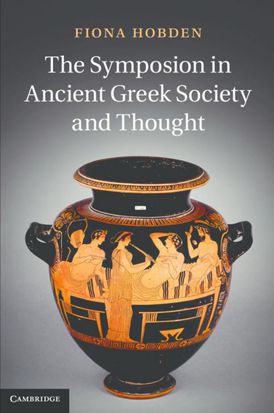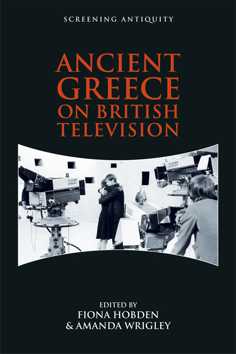Research

Ancient Greek Culture & Society: From Drinking to Old Age
Fiona's research into the culture and society of ancient Greece initially focused on the symposion, or drinking party. Investigations addressed social, political and religious aspects of the event, and especially the event's discursive role in the ancient Greek imagination: see 'The Symposion in Ancient Greek Society and Thought' (Cambridge, 2013). Fiona's primary research today explores experiences of ageing in ancient Greece, taking an intersectional, inter-relational and interdisciplinary approach. A chapter prepared for 'The Cultural History of Ageing in Antiquity, c.800 BCE to 500 CE' (edited by Tim Parkin and David Troyansky) addresses first-person experiences of ageing, drawing upon perspectives from Cultural Gerontology. Fiona is a former Editorial Board Member of Liverpool University Press, and remains co-Editor for its 'Ancient History Series'.

Classical Reception Studies: Antiquity on Television
Fiona's research in the field of Classical Reception Studies focuses primarily on the ancient world on television, and especially in documentaries. Themes include the interaction between fact and fiction within genre contexts, television as a source of emotional and historical knowledge about past and present, and the gender politics of television's ancient Roman women. Together with Amanda Wrigley, Fiona co-edited 'Ancient Greece on British Television' (Edinburgh, 2018). She is currently co-Editor, with her OU colleague Joanna Paul, of the journal 'New Voices in Classical Reception Studies'.
.jpg)
History & Philosophy: Xenophon the Athenian
Fiona's interest in Xenophon originated in Symposium, a Socratic dialogue set at a drinking party, which she examined for its meta-sympotic and philosophical strategies, including in her Symposion monograph (see above). Since co-editing 'Xenophon: Ethical Principles and Historical Enquiry' (Brill, 2012) with Christopher Tuplin, she has written on 'Oeconomicus' for Michael Flower's Cambridge Companion to Xenophon and authored an introduction to the author's texts and themes for Bloomsbury's 'Ancients in Action' series: ‘Xenophon’. Anabasis has provided the focus for two recent, interconnected studies on the work's reception in popular fiction (in 'Brill's Companion to the Reception of Xenophon', edited by Christopher Farrell and Dustin Gish) and its representation of the impacts and ethics of invasion (in 'Xenophon the Historian: Historiography, Historical Experience and the Uses of History', which she is co-editing together with Christopher Tuplin and Alexei Zadorozhny) (both forthcoming).